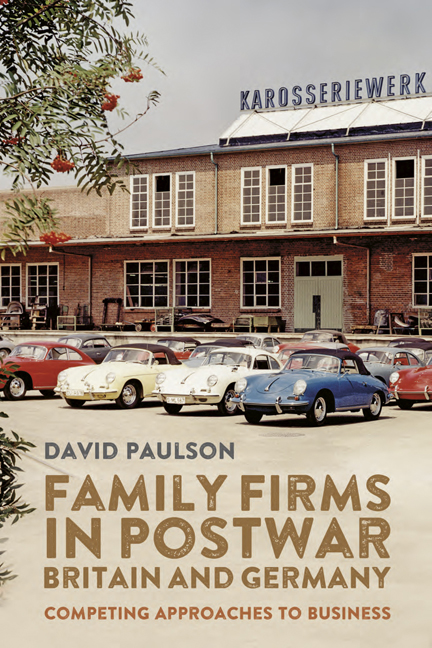5 - Chr. Wandel KG, Reutlingen
Published online by Cambridge University Press: 10 January 2024
Summary
In March 1953, the local newspaper in Reutlingen, 30km south of Stuttgart, celebrated the success of one of the town's specialist industries, the weaving of fine metal cloth or mesh utilised in the production of paper, which had once again reached production levels not seen since before “the lost war” (dem verlorenen Krieg). The four competitors in the town produced what had become a Reutlingen speciality, manufacturing between them 60% of total German production: those in Reutlingen could quite easily cover the whole German requirement and still have capacity to manufacture exports. Reutlingen was renowned for its textile trade, and its metal-cloth manufacturers drew on the town's traditional expertise in weaving. Threads 0.07mm thick were produced, and a Meister would take up to two weeks to prepare them. They were then woven on huge looms up to 8.5m wide which could produce cloths of up to 240m2 for use in paper-making machines: the paper pulp mixture was run along the fine mesh, and the liquids all drained through it while the paper dried out on top of it. As the machines used in mesh manufacture were so sophisticated the industry employed relatively little labour, but those it did employ had to be all the more skilled. According to the newspaper, “this precision work demand[ed] long experience, a very sure hand, very good eyes, and complete attention in every second.” The Reutlingen metal cloth trade, in other words, embodied the precision manufacturing within a clustered niche industry by which Mittelstand businesses had been differentiating themselves from their competitors outside Germany for decades.
Company and Industry Developments, 1860 to 1945
The smallest of the four competitors was the family-owned Christian Wandel, founded in 1869. It is worth reviewing in some detail the history of the business up to 1945 because it shows the way in which expertise was accumulated, family members’ own destinies were tied into the business, and future path dependencies were created. Christian Wandel himself had been the seventh child of a sieve-maker, whose family had been in the Reutlingen region since 1494, a century after Ulman Stromer had founded the first German paper mill near Nuremberg; a “sieve” (subsequently to become wire cloth) was always necessary for the production of paper.
- Type
- Chapter
- Information
- Family Firms in Postwar Britain and GermanyCompeting Approaches to Business, pp. 115 - 141Publisher: Boydell & BrewerPrint publication year: 2023

